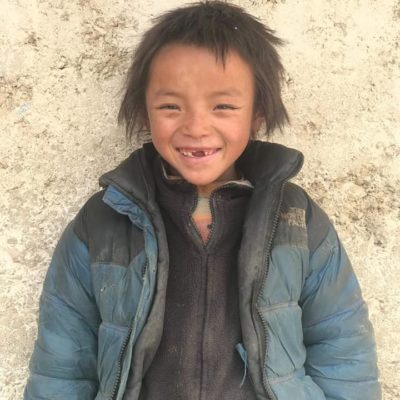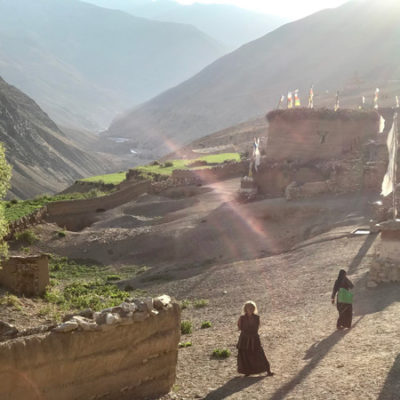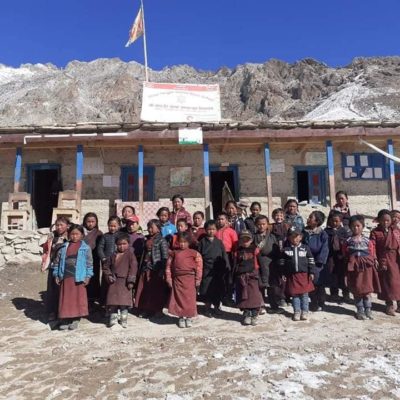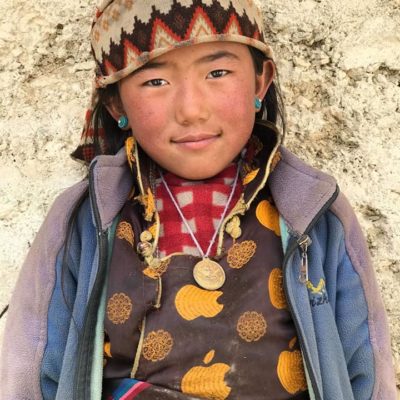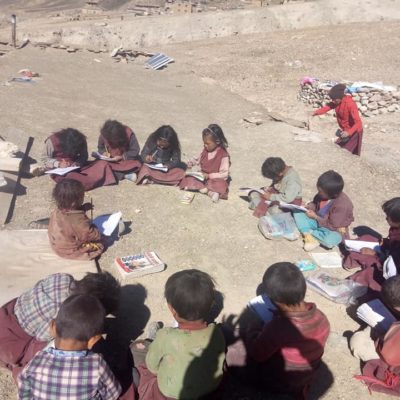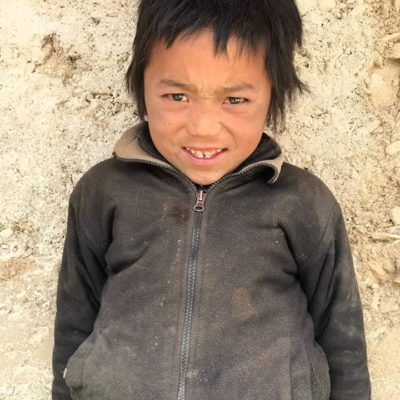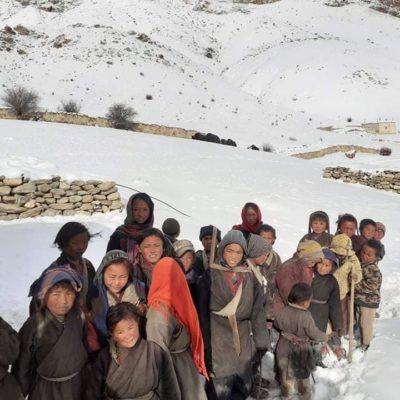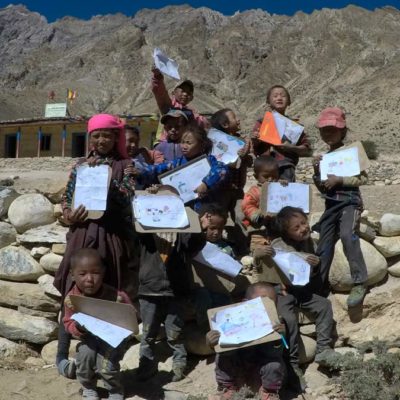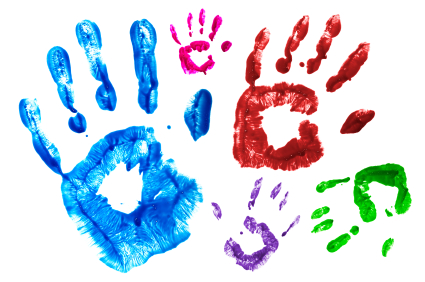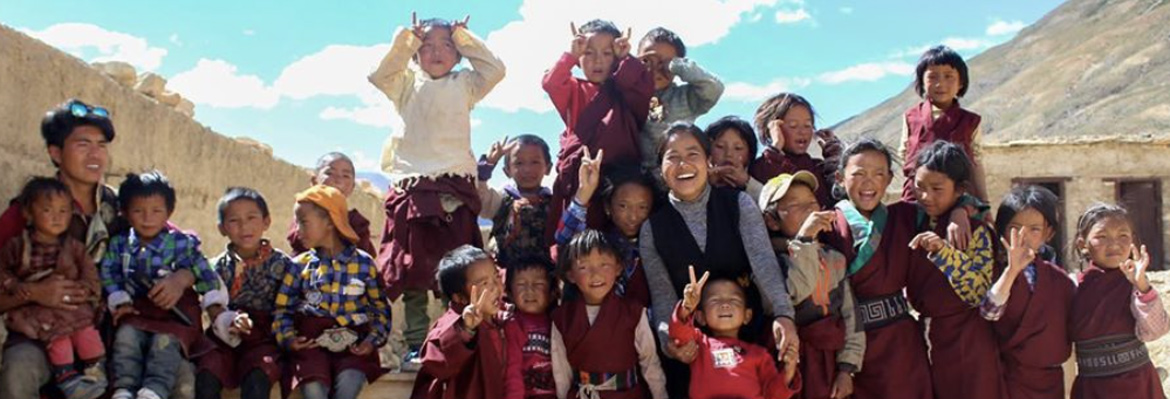
Yanjer Gumba Primary School, Nyisal
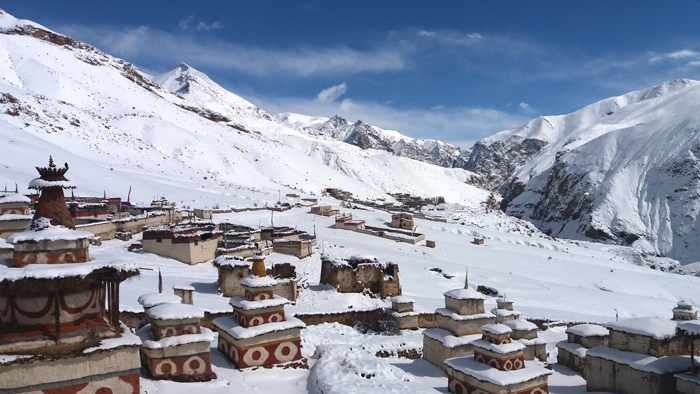
Nyisal is a village of about 40 households. It is on the Tibetan border, a little north of the other schools we work with. The school was opened in 2011 in a community hall by the Snow Yak Foundation, a Nepali NGO. Unfortunately, in 2019, Snow Yak had to end their support.
There is currently no sponsor for this school. If anyone knows of organizations or individuals that may be able to help with this school, please email us and we will put you in touch with their project coordinator. For now, multiple tiny NGOs and individuals are scrambling to come up with $20,000. We were able to help this year with a one-time grant of $14,000.
The school has an enrollment of 40 students, with 35 attending regularly. The youngest students are 3 years old, the oldest are 15. In previous years the school has only taught to grade 5, they are hoping to add a class 6 this year.
The school also teaches older students from Mushi, a village of about 15 households a 3 hour walk from Nyisal village. These students stay at the Nyisal school and return home once a month to visit their families. Last year Mushi opened a small school so that children can study in their home village until grade 3. This year, at the request of our dear friend Nyima Bhuti, coordinator for the school at Komang, we helped them with $2,500 to build two rooms at the school.
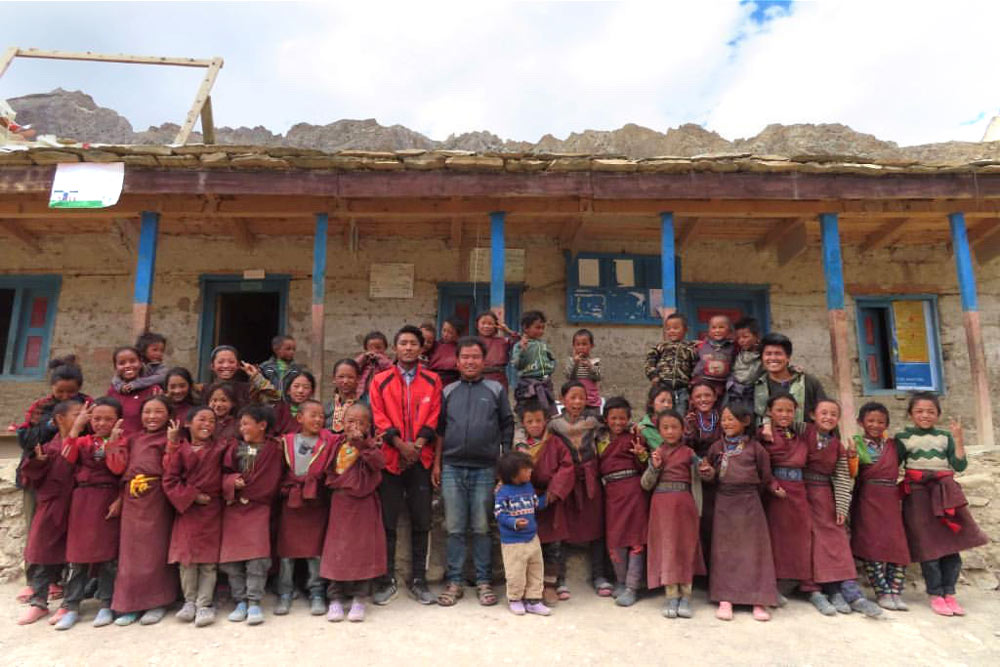
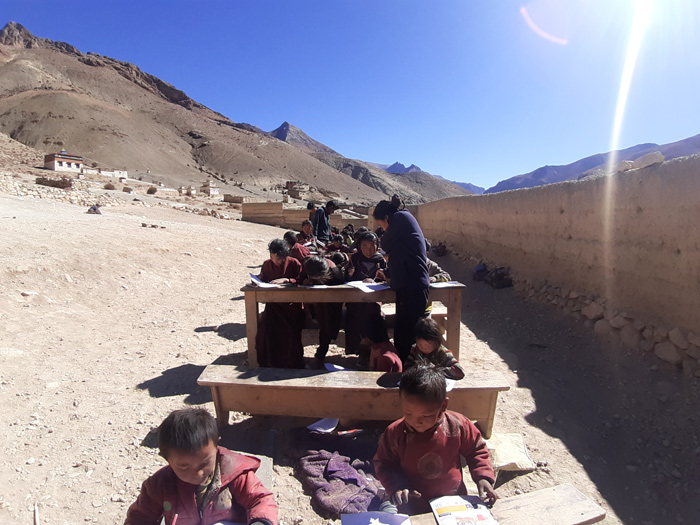
Nyisal school has 2 classrooms. One classroom doubles as a kitchen/dining room, the other as a student hostel and a teacher’s bedroom. A third small room doubles as an office and a teacher’s bedroom. They all leak.
Classes are often held outside where it is warmer and brighter.
Two Student’s Stories
Pema Tsering is 13. He is in grade 5. He is an intelligent, creative, hard working boy. He excels in his academic studies and enjoys creative activities like dancing, singing, painting and drawing. He loves to play football.
His father left the family when he was very young and he has been raised by his grandmother. He lives with her, along with his mother, his younger brother, and a stepsister. Pema helps his grandmother and mother at home doing cleaning, getting the water from the river and collecting sticks and yak dung for heat and cooking. On weekends he works herding the family’s sheep and goats in the mountains. Pema’s favorite subject is science and he wants to become a doctor!
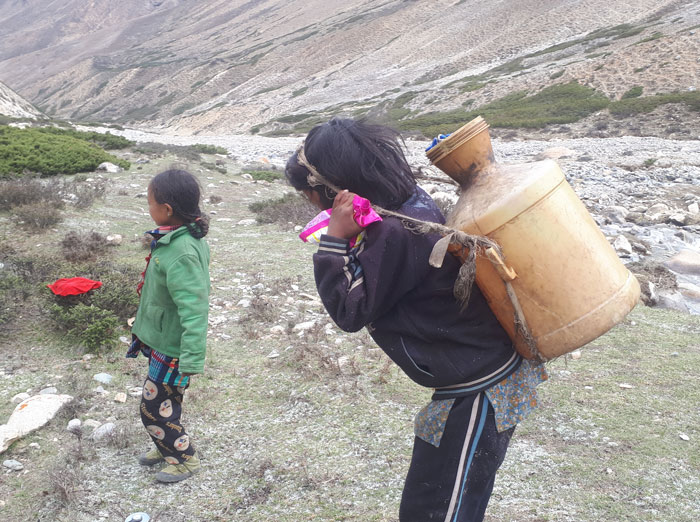
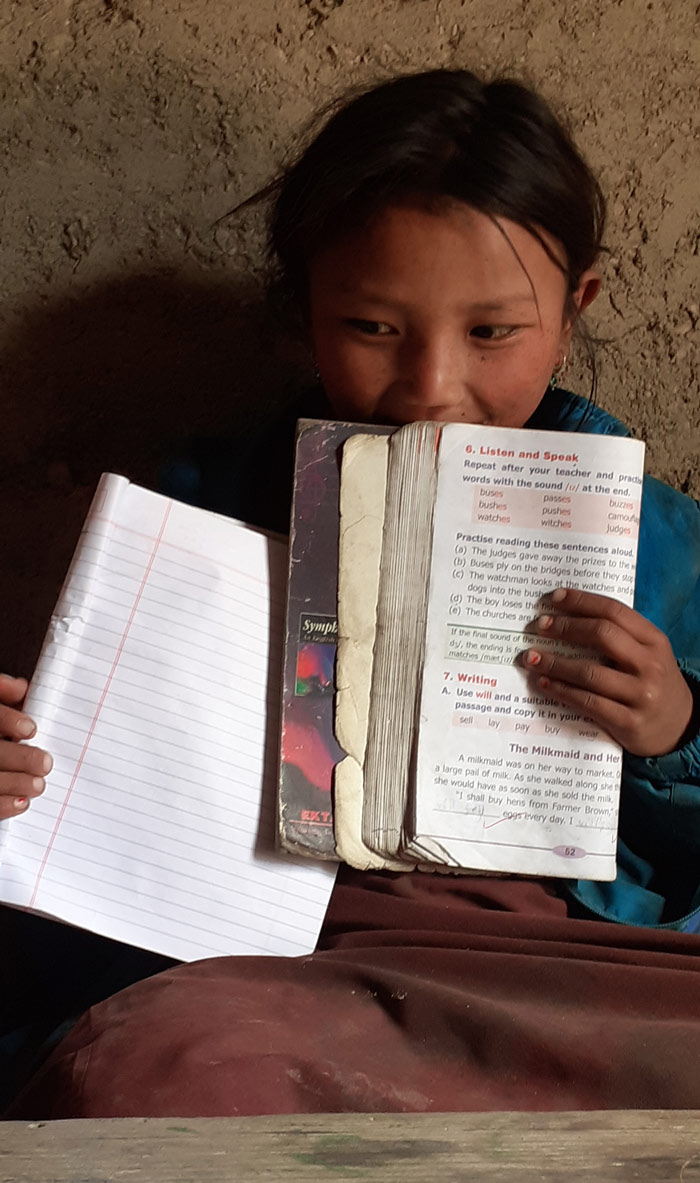
Pema Dolma is 13 and is in grade 1. She is very bright and works very hard. She loves school and she does all her homework, and more, on the very rare occasions when she is allowed to go to school. Her mother died, and she lives with her stepmother, her father and her two younger brothers. The family is very poor and they need her help at home. She cares for her brothers who are too young to go to school. She helps with all the household chores, getting the water, cooking, cleaning, washing, and collecting sticks. She also helps with fieldwork.
Pema so desperately wants an education that sometimes she runs away from home, and comes to school without letting her parents know. Occasionally they let her go to school, but only for a week, then, a few months later, for another week. Her teacher, Phurba, sympathizes with her parents, but considers it her personal mission to help Pema learn. She says, “Her parents are angry with me for encouraging her dream, but I will keep asking them to send their daughter to school.”
Education is a human right. Sacrificing a girl’s education to help with chores traps her in a cycle of poverty. Women like Phurba who grew up here and have returned home as teachers, nurses, community leaders etc, are determined to transform their communities. They are the ones who can challenge the status quo, mentor new generations of students and create sustainable change and wider economic improvement.
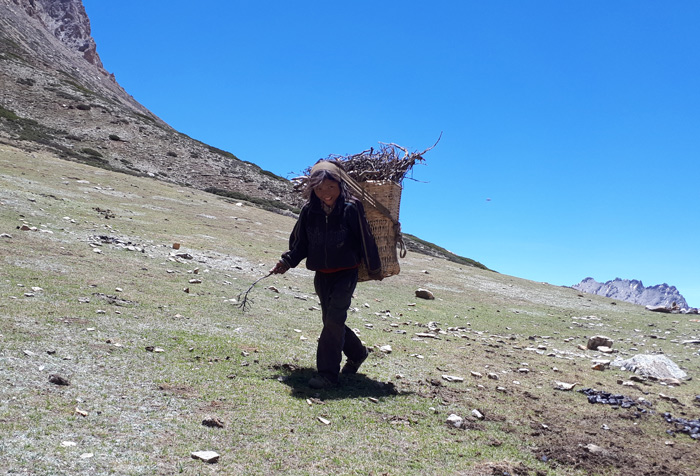
Two Teacher’s Stories
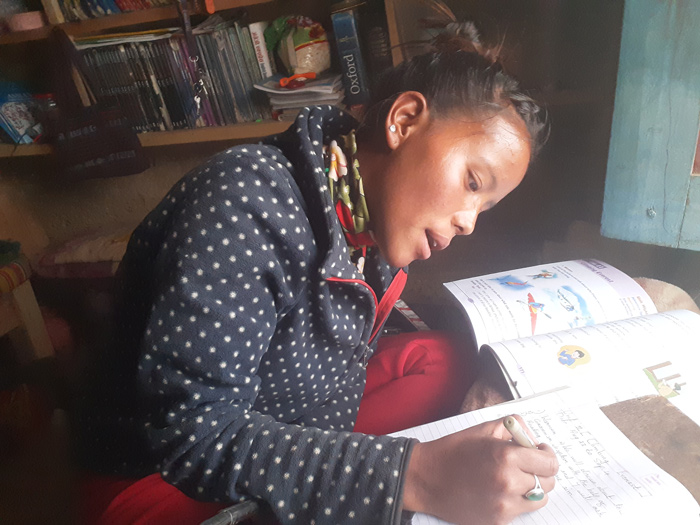
Phurba Sangmo Gurung has taught at Nyisal school for 5 years, the first 2 as a volunteer. Last year villagers elected her as their school coordinator, she is the first female school coordinator in the Dolpo.
Phurba was born in Saldang to a very poor family. Her single mother sent her to school when she was 8 years old. Sadly, her mother died when Phurba was 15, in grade 6, and did not get to celebrate her daughter completing her education in Kathmandu.
Phurba is like a mother to many of the students. She cares not just for the children from Mushi who are hosteling at the school, but for many Nyisal children whose parents must work very long hours in their fields. She helps them with their classwork after school, she plays with them, and she looks after their health and hygiene. She is an excellent cook and serves delicious Dolpo dishes. She is much loved by the kids, their parents and the people of the villages. She is an inspiration to the kids, to the people of the Dolpo, and to us!
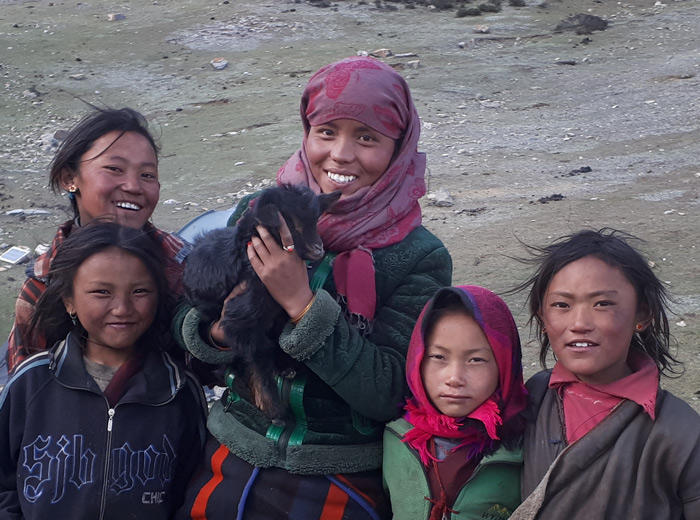
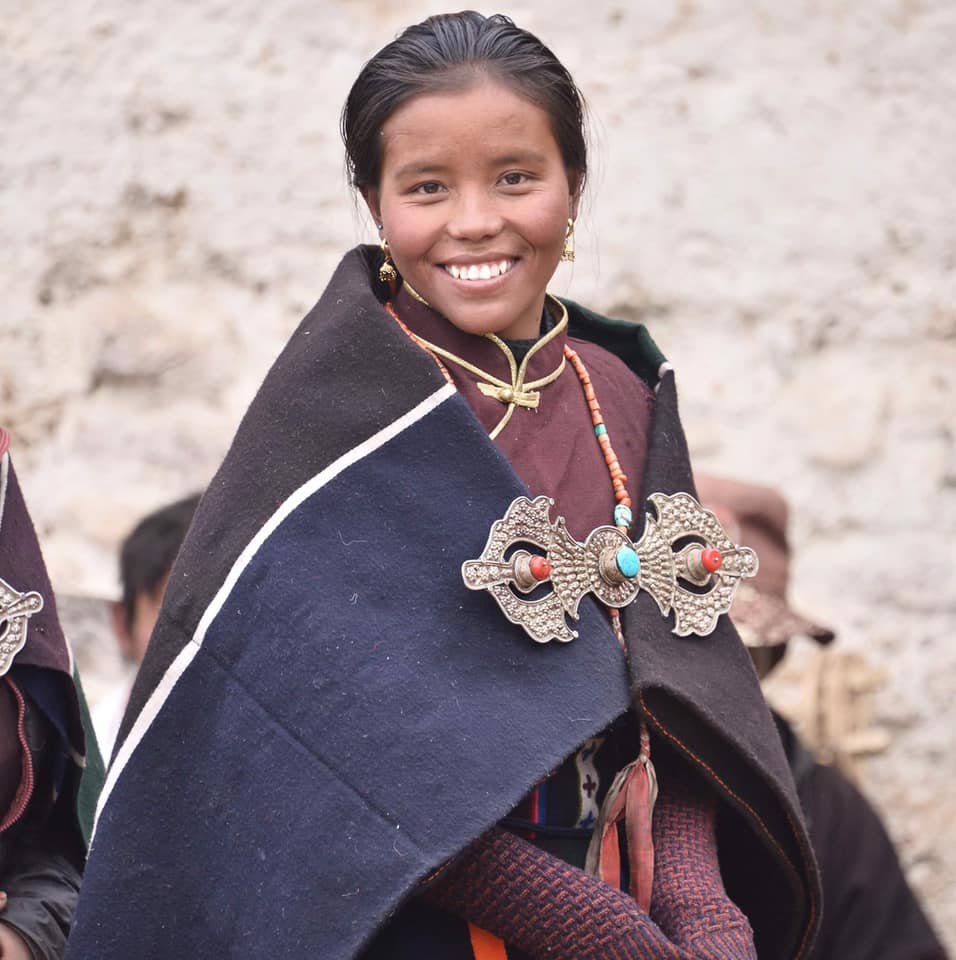
Like her own mother, she is a gifted singer. Phurba treasures the many old Dolpo songs that her mother taught her, these traditional songs help keep the Dolpo culture alive. She shares her joy of singing at events in Kathmandu and in Dolpo and uses her voice to raise funds for the school. She was recently asked by Pema Gojor, from Karang, to do a music video as part of the 2021 Losar (New Year) celebration. The support and appreciation from the Dolpo community was overwhelming!
Nyima Tashi Gurung has been teaching in Nyisal school since 2013. He teaches Tibetan language, history and culture and basic Buddhist philosophy. He is an accomplished musician who plays beautiful Dolpo songs on the damgyen, a Tibetan guitar like instrument.
He was born in Dhundhar village, about 5 hours walk from Nyisal. Nyima walks home after school Friday, spends the weekend with his wife and 2 kids, then walks back to the school Sunday.
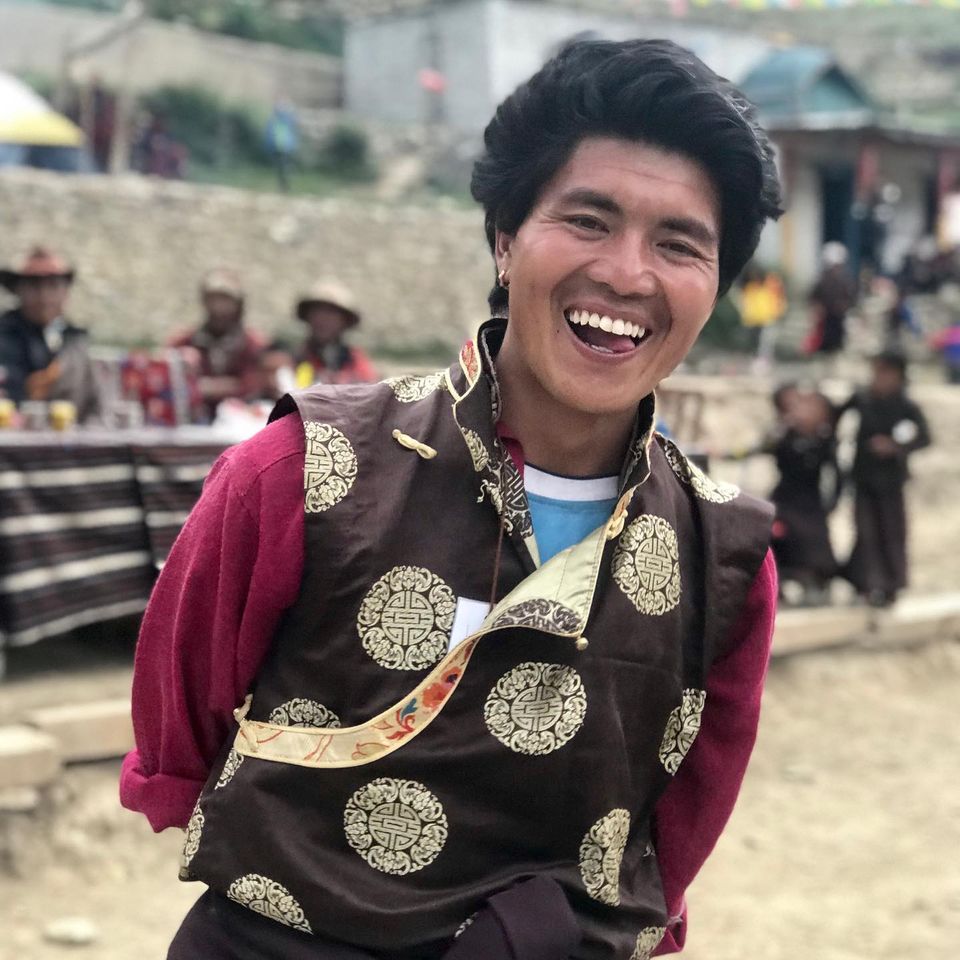
Adult Literacy Classes
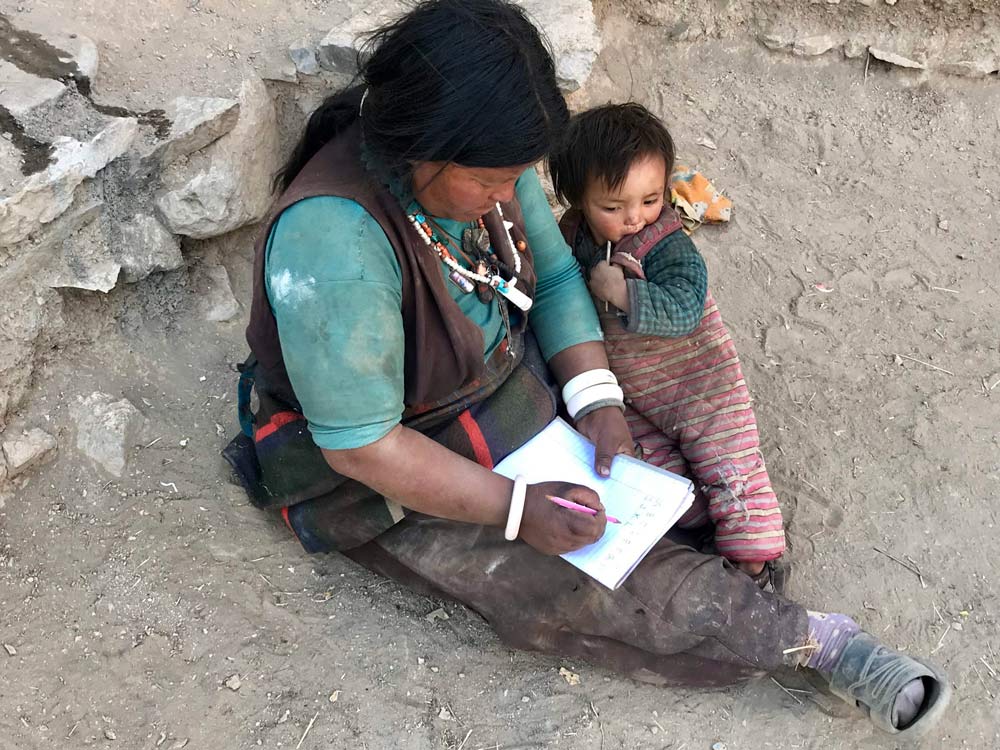
The school also holds literacy classes for the villagers in the evening. They are especially grateful for the opportunity to learn to read and write in Tibetan. In 2020, they were unable to teach the adults because there was not enough funding. They are hoping this year will be better.
The Story of an Adult Student
Karma Sangmo is 15. She attended the winter adult education classes for 3 months in 2019. It was her first experience as a student and she loved it! She had been devoted to helping her family with household and agricultural/herding chores, but the classes inspired a love of learning. Her parents supported her interest and she now attends both winter and summer classes and is progressing well.
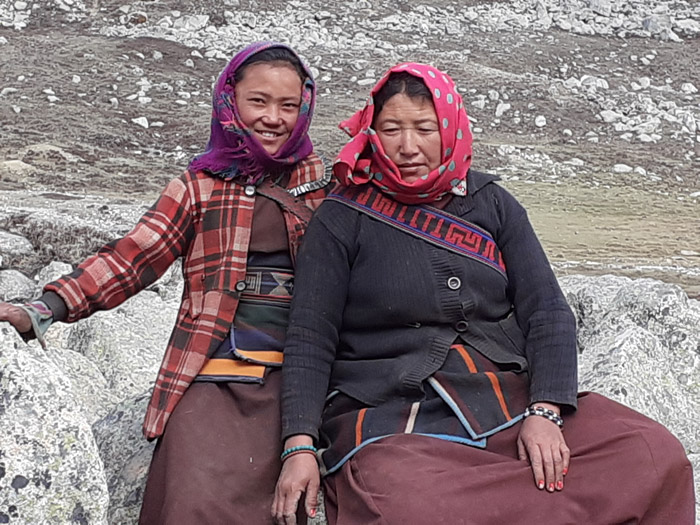
Winter Classes
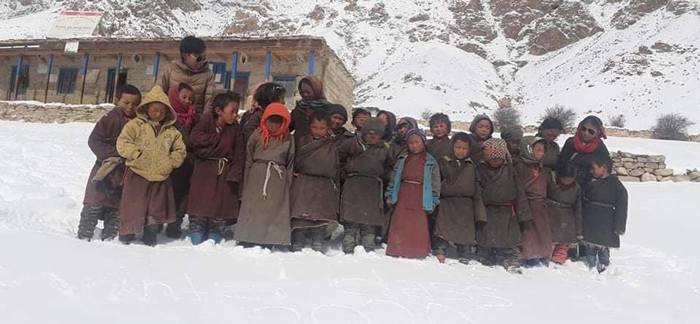
Winter classes run from December through February. The winter classes continue to teach the regular government curriculum, but focus more on the Tibetan language, Dolpo history and traditions, basic Buddhist philosophy, and cultural performances and arts.
Adult literacy classes are held in the evening. This gives adults and older children, who must work in the fields in the spring and summer, an opportunity to learn to read and write in Tibetan, Nepali and English. Basic numeracy skills are also taught.
Beyond Nyisal School
Nyisal does not have a hostel in Kathmandu for students who want to continue beyond grade 5. A few fortunate students are able to secure a spot in another school’s hostel. (The Karang Hostel was able to take 3 students. They are the only students from Nyisal who have continued academic studies beyond grade 5.) Many boys become monks and enter monasteries for further education. Most girls, despite fiercely wanting to continue their education, return to a life of fieldwork and household chores. Many get married and give birth, while barely out of childhood, to a new generation of poor children.
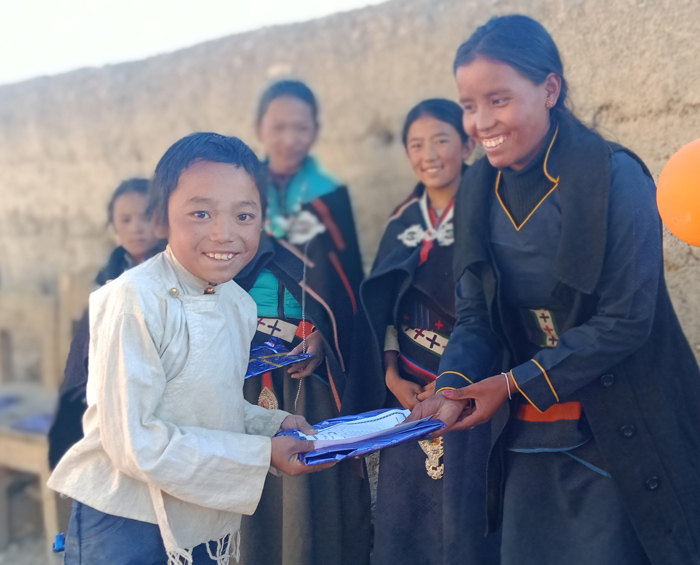
Village Support
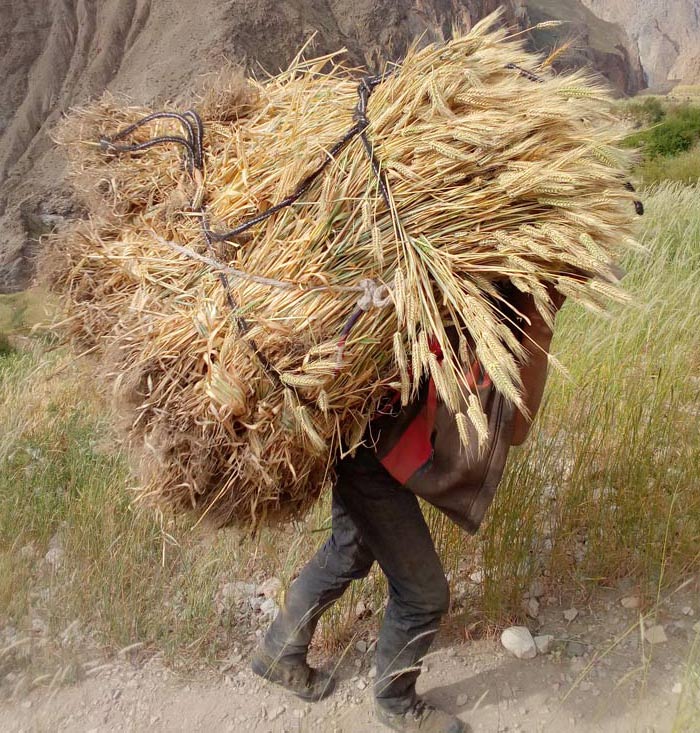
Karma Sangmo’s father carrying barley from the field to home
The villagers are very supportive of the school. Despite their own very limited resources, if the school or the teachers need anything at all, the villagers do their best to help. They provide firewood and dung cakes for cooking, and flour, oil, ghee, spices, leafy vegetables, potatoes and barley tsampa for student and teacher meals. They shovel snow off the roof during major snow storms.
Government Support
The government provides no funding for teachers. It does provide occasional support for infrastructure, but it is insufficient. Last year the teachers had to move to different rooms to teach because of the leaking roof and walls. Floods caused by the heavy rains of climate change have damaged the school courtyard.
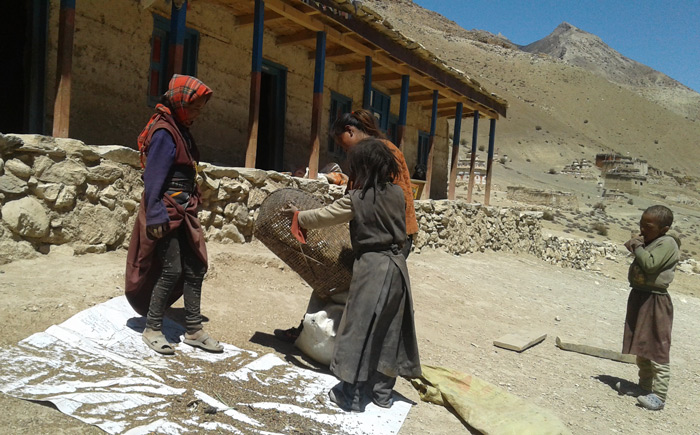
Making dung and mud paste to fill holes in the school walls
Power and Water and a Greenhouse
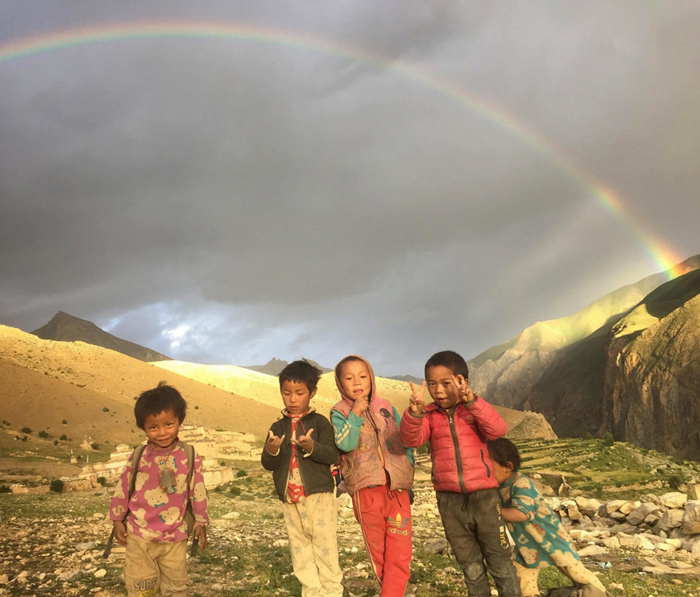
The school has minimal electricity from a few small solar panels. We have asked our friend Peter Werth of Himalaya Currents for some help here. He has been setting up sustainable energy and water projects in remote Himalayan villages for many years. He is hoping to help them out this year.
The school does not have a greenhouse. Parents with greenhouses donate some of their precious vegetables for the student and teacher meals. We have asked our friends Peter Hinze of Dolpo Project and Pema Wangchen of Wangchen for Change for their assistance. They are dedicated to building greenhouses in this region to help with the increasing food insecurity brought on by a changing climate.
There is a water tap at the school. Long pipes bring water from a spring that is a 45 minute walk from the village. Sometimes the pipes are broken by animals or by rock fall and water must be carried from the river. There is a filter at the school to insure the students always have safe drinking water.
Health Care in Nyisal
Nyisal has no health post. The closest one is in Karang, a few hours walk away. The nurse comes to Nyisal twice a year. Sometimes the very sick go to the Karang clinic. Most often they visit the Amchi in the nearby gumba for their medical needs. The Amchi uses medicinal herbs and traditional techniques to treat the villagers.
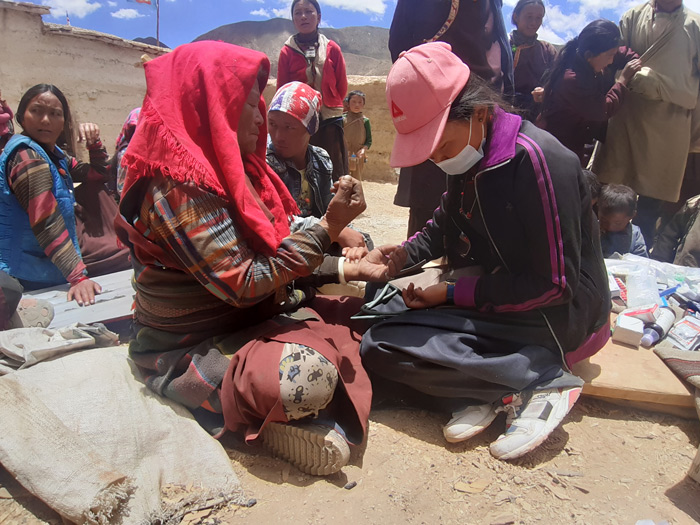
The Gumbas
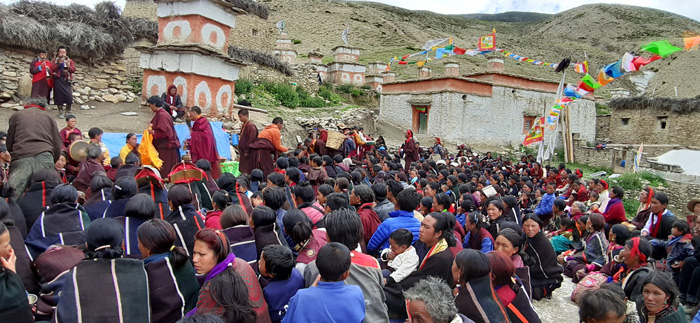
Puja festival at Yangzer Gumba
There are two major gumbas (monasteries) in Nyisal. The school takes its name, Shree Yangjer Gumba Basic School, from the centuries old Yangjer Gumba, one of the oldest and most important monasteries in the region.
Every winter, at the Yangzer Gumba, there is a big puja. Many people from other villages come to the two day festival. The students and teachers perform traditional dances.
Lama Jigme is the head lama of Nyisal village. Many attend the ten days of prayers that he holds at his Gephel Gumba every autumn.
The two gumbas are revered by the Dolpo people as a place of pilgrimage. Many trekkers also visit, both to see the ancient gumbas and to receive blessings from Lama Jigme. When the school lost their primary sponsor in 2019, and the teachers were scrambling for funding to keep the school open, they opened a little shop and sold barley soup, vegetable dumplings, bread and coffee to the visitors and raised almost $1,000USD!
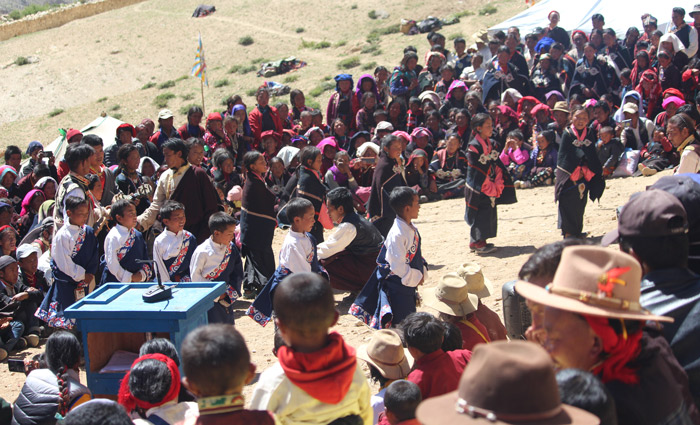
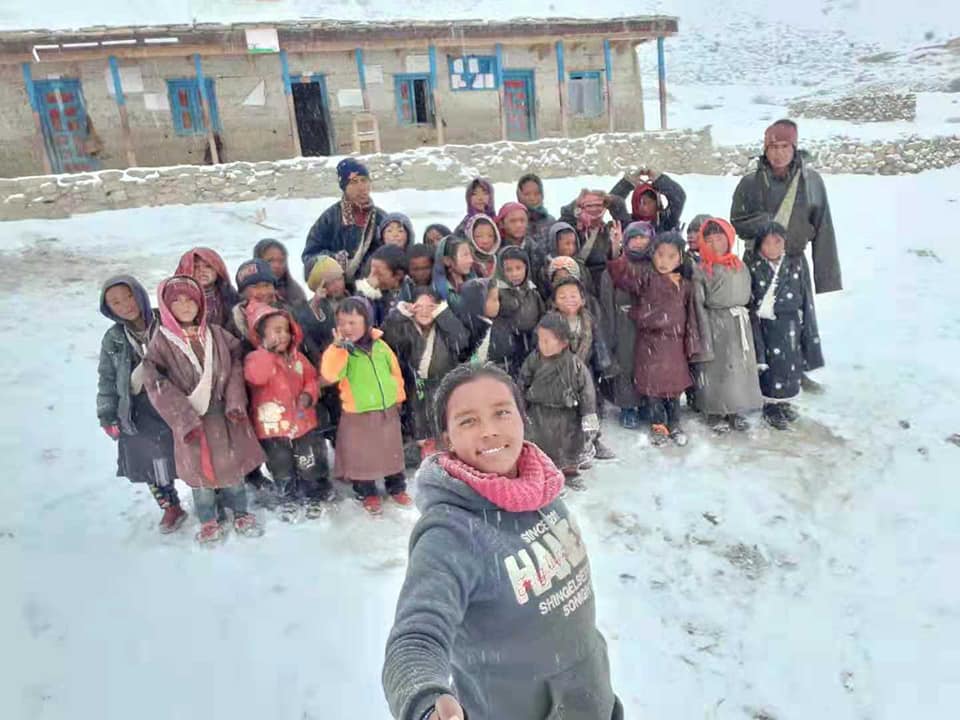
Again, please, if anyone knows of organizations or individuals that may be able to help with this school, please email us and we will put you in touch with their project coordinator.

